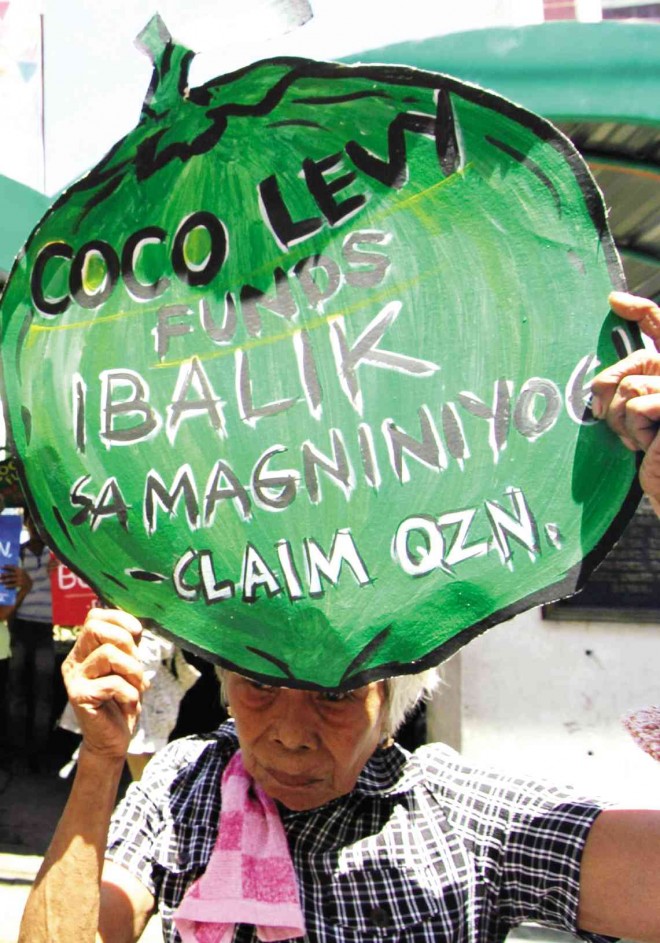Coco fest a time to call for return of levy

A COCONUT farmer carries a placard shaped like a coconut at a recent rally demanding the return of at least P74 billion in coconut levy funds to farmers. DELFIN T. MALLARI JR./INQUIRER SOUTHERN LUZON
LUCENA CITY—In time for the annual celebration of “Niyogyugan (Coconut) Festival” next week, Quezon Gov. David Suarez appealed to the national government to return the multibillion-peso coconut levy fund to farmers.
“It must be returned to them. I believe in justice. It came from them and they are the rightful owners of that fund,” Suarez said in an interview on Aug. 1 in Unisan town.
The weeklong festival, to start on Aug. 10 at the provincial capitol complex here, is the local government’s way of recognizing the role of the coconut industry in the cultural and historical development of Quezon.
Suarez said the provincial government is now formulating the “Coconut Development Program Roadmap” (CDPR) to serve as the “bible” for all plans to improve the lives of coconut farmers in Quezon.
In his five years as governor, Suarez said many of the projects and programs implemented by the national government “did not produce the desired result for the benefit of the province.”
“We now want to change the approach. We want the solutions to come from the farmers. And that’s what we will adopt,” Suarez said.
He said one of the approaches under the planned CDPR is to diversify the local coconut industry and shift its focus away from just producing copra.
He said the province aims to boost the production of virgin coconut oil, coconut water, coconut coir and coconut sugar, among many other coconut by-products.
The province would help coconut farmers who want to engage in other coconut-related business, he said.
Suarez said the provincial government and the Philippine Coconut Authority would start a massive coconut replanting program, with over 100,000 seedlings to be planted this year.
Suarez said the P74 billion in levy forcibly collected from coconut farmers could be put to good use now that thousands of hectares of coconut farms had been ravaged by pests.
The total coconut levy fund is estimated to be around P200 billion, according to figures from several farmers organizations.